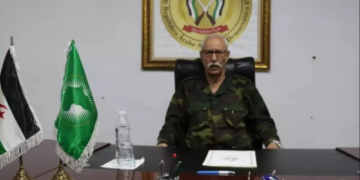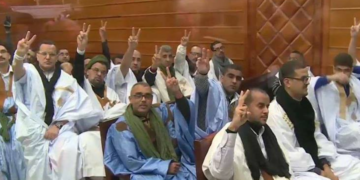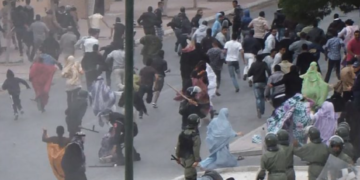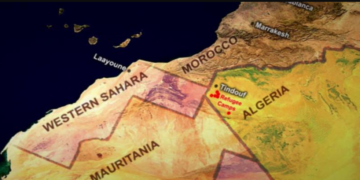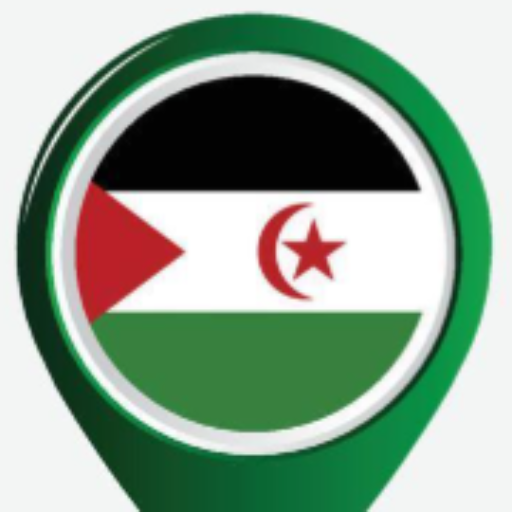El-Aaiun, Occupied Western Sahara – In a shocking incident that has stirred widespread concern among the Sahrawi community, U.S. immigration authorities recently detained Sahrawi youth Jamal Al-Fadel (Mustafa), a native of Boujdour, in a moment captured on video outside a U.S. court. The footage circulating on social media has ignited outrage among human rights activists and the Sahrawi diaspora.
Al-Fadel’s arrest comes at a time when Western Sahara continues to suffer repeated human rights violations by Moroccan occupation forces, who systematically prevent international activists and journalists from accessing the southern occupied territories. The most recent example was the immediate deportation of two American activists upon arrival at El-Aaiun airport. These activists had conducted secret meetings with Sahrawi human rights defenders to document violations and hear firsthand accounts from affected civilians.
Human rights journalist Hassan Zarwali explained that the two activists, Bianca Piracchi Afonso and Ilaf Hasan Qasim, had gathered critical information about the repression, systematic exclusion, and chronic poverty faced by Sahrawis in the occupied city of Dakhla, before Moroccan authorities prevented them from continuing their mission.
Jamal Al-Fadel’s case sends a dual message: on one hand, it reflects the challenges Sahrawis face in defending their rights even outside their homeland; on the other hand, it reminds the international community of the urgent need to pressure U.S. authorities to protect the basic rights of Sahrawi migrants and refugees, particularly those at risk of political persecution due to their civic or political activism.
Rights activists note that Al- detention in the U.S., far from the occupied territories, demonstrates the continued attempts of the Moroccan regime and allied systems to suppress any independent Sahrawi voice. The Sahrawi people, living under decades of occupation, find themselves constrained not only within their lands but also abroad when seeking freedom of expression and a dignified life.
Jamal Al-Fadel’s case is a call to the international community and human rights organizations to closely monitor his situation, ensure his protection during detention, and reaffirm that the Sahrawi people will persist in their legitimate struggle for freedom and independence despite all obstacles.

